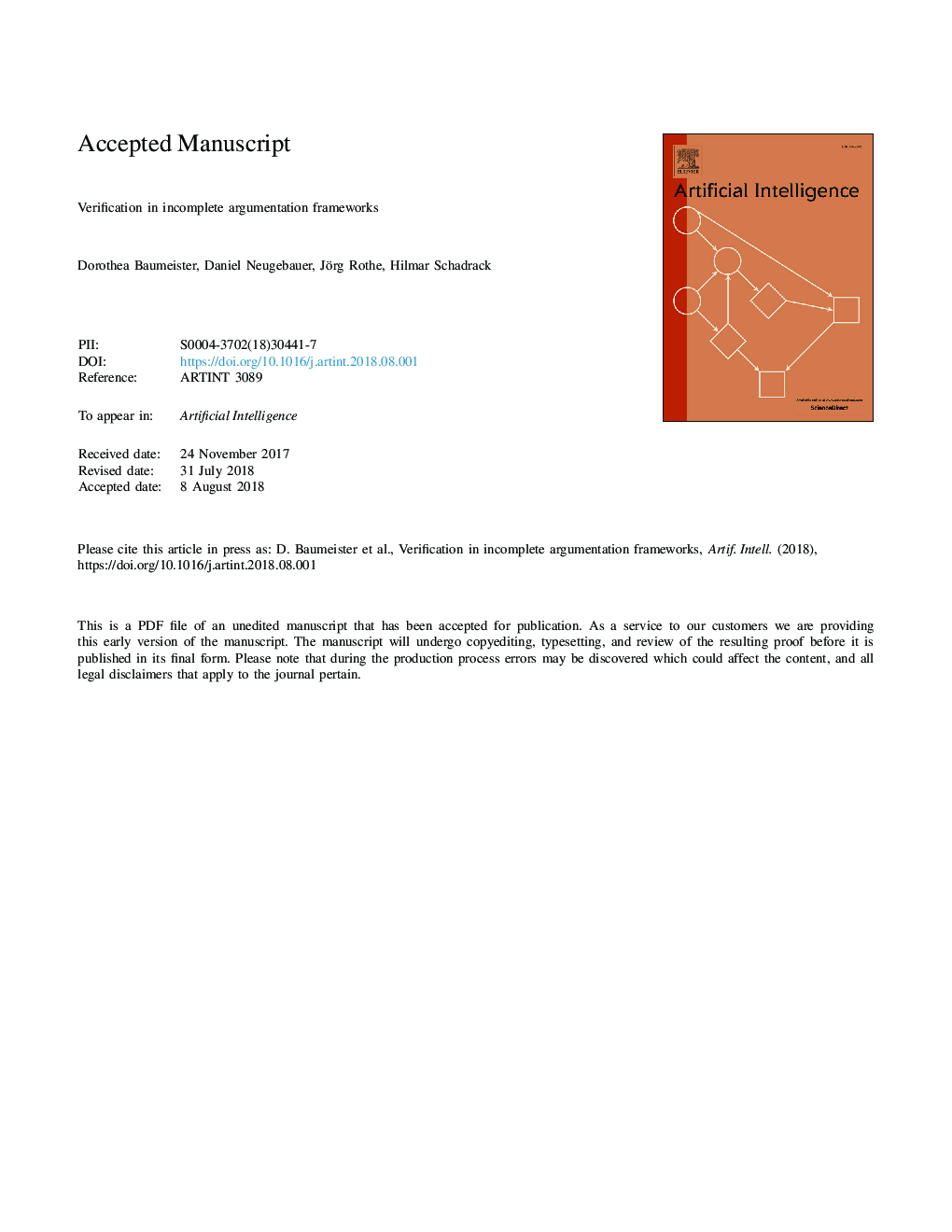| Article ID | Journal | Published Year | Pages | File Type |
|---|---|---|---|---|
| 8953546 | Artificial Intelligence | 2018 | 37 Pages |
Abstract
We tackle the problem of expressing incomplete knowledge in abstract argumentation frameworks originally introduced by Dung [26]. In applications, incomplete argumentation frameworks may arise as intermediate states in an elicitation process, or when merging different beliefs about an argumentation framework's state, or in cases where complete information cannot be obtained. We consider two specific models of incomplete argumentation frameworks, one focusing on attack incompleteness and the other on argument incompleteness, and we also provide a general model of incomplete argumentation framework that subsumes both specific models. In these three models, we study the computational complexity of variants of the verification problem with respect to six common semantics of argumentation frameworks: the conflict-free, admissible, stable, complete, grounded, and preferred semantics. We provide a full complexity map covering all three models and these six semantics. Our main result shows that the complexity of verifying the preferred semantics rises from coNP- to Σ2p-completeness when allowing uncertainty about either attacks or arguments, or both.
Related Topics
Physical Sciences and Engineering
Computer Science
Artificial Intelligence
Authors
Dorothea Baumeister, Daniel Neugebauer, Jörg Rothe, Hilmar Schadrack,
